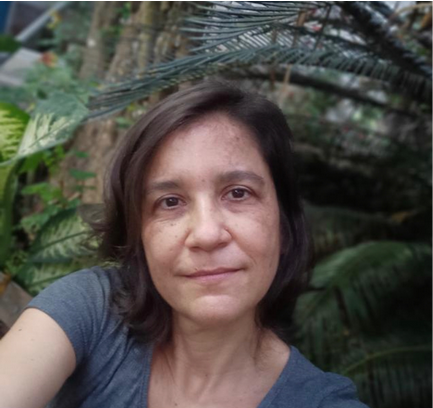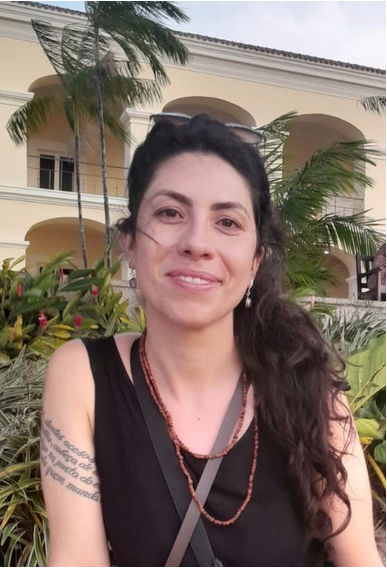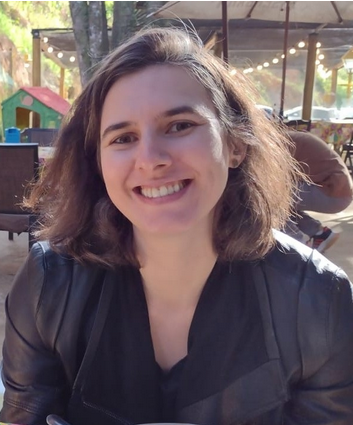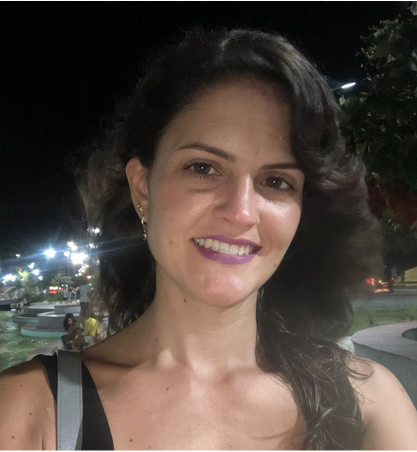Objectives
Abstract: The Amazon biome is under threat due to increasing deforestation rates and loss of biodiversity and ecosystem services while sustaining a high burden of neglected tropical diseases. Socio-economic and environmental landscape transformations are linked to the agrarian economy dynamics. Providing solutions for these complex problems demand ever-increasing exchanges of knowledge between academic disciplines. This talk will discuss results from a Scientific Synthesis project, “Trajetorias”, nursed within the Synthesis Center on Biodiversity and Ecosystem Services (Sinbiose-CNPq). The objective is to provide a framework for the joint debate of the economic, environmental and health dimensions and contribute to a more systemic understanding of the relationships between biodiversity and human health in the region. We will introduce the "Trajetorias" dataset for monitoring health and the environment, linked to the rural technoproductive trajectories that mediate the relationship between man and the environment. In 2017, peasant trajectories dominated approx. 50% of the territory, mostly in areas covered by continuous forest where malaria is an important morbidity and mortality cause. Cattle-raising trajectories are associated with higher deforestation rates. Meanwhile, commodity economies, comprising large-scale cattle and grain production, are associated with rapid biodiversity loss and a high prevalence of neglected tropical diseases, such as leishmaniasis, dengue and Chagas disease. Overall, these results defy simplistic views that the dominant development trajectory for Amazon will optimise economic, health and environmental indicators.
 Cláudia Torres Codeço, a Senior Researcher in Public Health at the Oswaldo Cruz Foundation (Fiocruz/Brazil). She has published over 100 articles on the epidemiology and ecology of climate-sensitive diseases. She is a MSc and PhD advisor at the Epidemiology in Public Health Program and Tropical Medicine Program at Fiocruz. Claudia has served as a consultant for the Brazilian Ministry of Health during several public health emergencies, including Zika, H1N1, and COVID-19. Claudia has a BSc in Biology and PhD in Quantitative Ecology. Her PhD in freshwater ecology and biomathematics provided the background for innovative work on cholera modelling, linking environment and transmission dynamics. When dengue emerged as a public health problem, Claudia joined entomologists and epidemiologists to design field and laboratory studies to infer parameters for dengue mathematical models. In 2008-2011, she led a multicenter project to increase the interaction between mathematicians and epidemiologists in Brazil to strengthen the field of mathematical epidemiology. Since 2014, she has co-leads the Infodengue system that applies model-based indicators to dengue surveillance, providing early warnings at the local and national levels. Claudia has also been dedicated to landscape epidemiology, a field that studies the relationships between the dynamics of diseases to the social and ecological landscape since 2010. She has studied the ruralisation of dengue in the Amazon region and the persistence of malaria in areas of the Amazon region transformed by economic activities and settlement programs. During this period, she participated in scientific synthesis groups at NCEAS, SESYNC and Sinbiose/CNPq dedicated to epidemiology, climate-sensitive diseases, and drivers of land use and land cover change. She is the leader of the Trajetorias group, a scientific synthesis project devoted to studying the economic, epidemiological and ecological trajectories of the Amazonian municipalities within the framework of Planetary Health. She currently participates in the Wellcome Trust digital technology, climate, and health projects, HARMONIZE and IDExtremes, which aim to provide robust data and modelling tools to build local resilience against emerging infectious disease threats in climate change hotspots.
Cláudia Torres Codeço, a Senior Researcher in Public Health at the Oswaldo Cruz Foundation (Fiocruz/Brazil). She has published over 100 articles on the epidemiology and ecology of climate-sensitive diseases. She is a MSc and PhD advisor at the Epidemiology in Public Health Program and Tropical Medicine Program at Fiocruz. Claudia has served as a consultant for the Brazilian Ministry of Health during several public health emergencies, including Zika, H1N1, and COVID-19. Claudia has a BSc in Biology and PhD in Quantitative Ecology. Her PhD in freshwater ecology and biomathematics provided the background for innovative work on cholera modelling, linking environment and transmission dynamics. When dengue emerged as a public health problem, Claudia joined entomologists and epidemiologists to design field and laboratory studies to infer parameters for dengue mathematical models. In 2008-2011, she led a multicenter project to increase the interaction between mathematicians and epidemiologists in Brazil to strengthen the field of mathematical epidemiology. Since 2014, she has co-leads the Infodengue system that applies model-based indicators to dengue surveillance, providing early warnings at the local and national levels. Claudia has also been dedicated to landscape epidemiology, a field that studies the relationships between the dynamics of diseases to the social and ecological landscape since 2010. She has studied the ruralisation of dengue in the Amazon region and the persistence of malaria in areas of the Amazon region transformed by economic activities and settlement programs. During this period, she participated in scientific synthesis groups at NCEAS, SESYNC and Sinbiose/CNPq dedicated to epidemiology, climate-sensitive diseases, and drivers of land use and land cover change. She is the leader of the Trajetorias group, a scientific synthesis project devoted to studying the economic, epidemiological and ecological trajectories of the Amazonian municipalities within the framework of Planetary Health. She currently participates in the Wellcome Trust digital technology, climate, and health projects, HARMONIZE and IDExtremes, which aim to provide robust data and modelling tools to build local resilience against emerging infectious disease threats in climate change hotspots.

Ana Cláudia Rorato, Degree and Bachelor in Biological Sciences (2010) and Master in Ecology and Conservation (2013) from the Federal University of Paraná - UFPR. During this period, she worked in behavioral ecology with experience in field expeditions. PhD in Earth System Science from the National Institute for Space Research-INPE (2021), she developed an assessment of the environmental vulnerability of Indigenous Lands in the Brazilian Amazon. Her thesis entitled 'Indigenous Lands of the Brazilian Amazon: environmental threats, vulnerability and public policies' was awarded the 2022 Capes Thesis Award Honorable Mention in the area of Environmental Sciences. During her PhD, she was a Visiting Research Fellow at the University of Münster in Germany. Between 2021 and 2022, she worked as a postdoctoral researcher in the SinBiose Trajectories project (Fiocruz / INPE) of CNPq. She is a postdoctoral researcher in the HARMONIZE project (Fiocruz / INPE / Barcelona Supercomputing Center). She is a collaborating researcher at the Laboratory of Investigations in Socio-Environmental Systems (LiSS) at INPE. Currently develops research in the areas of ecology, environmental conservation, analysis of changes in land use and land cover, assessment of environmental threats in Indigenous Lands, creation of socio-environmental and vulnerability indicators, assessment of the application of environmental public policies in the Amazon, aerial mapping with drones, remote sensing and geotechnologies.

Ana Paula Dal’Asta, Collaborating researcher at the Laboratory for investigation of Socio-Environmental Systems (LiSS) at the National Institute for Space Research (INPE) in Brazil. She holds a Bachelor's and Master's degree in Geography, as well as a PhD in Remote Sensing. Since 2010, she is involved in research projects focused on the interrelationship of population, space, and the environment in the Brazilian Amazon. During her PhD, she developed a representation model for the gradient of urbanization in an Amazonian area. Currently, Ana Paula is participating as a postdoctoral researcher in the HARMONIZE Project (Fiocruz / INPE / Barcelona Supercomputing Center). Her current research focuses on socio-economic indicators, urbanization processes and their socio-spatial expressions, land use and land cover change and the use of remote sensing and geotechnologies.

Raquel Martins Lana, a Beatriu de Pinós Postdoctoral Fellow at the GHR-BSC. Her background is in quantitative epidemiology, with an undergrad in Biology, MSc. in Ecology, and Ph.D. in Epidemiology (Brazil). In 2017, she was awarded the Oswaldo Cruz Thesis Award. Her research focuses on infectious disease dynamics and their association with environmental, climate, and social factors. At the BSC, Raquel works on data infrastructure and community engagement to co-design modelling tools for climate-sensitive diseases within the HARMONIZE and Mosqclimate projects. Previously, she was a post-doctoral researcher in Scientific Computing Science at Oswaldo Cruz Foundation (Fiocruz), Brazil, working with the epidemiology of COVID-19, arboviruses, malaria, and syphilis. Raquel worked as a government adviser for the national COVID-19 vaccination plan in Brazil and also generated technical reports, papers, and outreach materials. Furthermore, she worked as a lecturer in Public Health at the University of Brasília and the Fiocruz post-graduation Program in Epidemiology (Brazil). In addition, Raquel has been supervising masters and PhD students since 2019 in Fiocruz and the Federal University of Minas Gerais (UFMG).
Speakers
Speakers: Cláudia Torres Codeço, a Senior Researcher in Public Health at the Oswaldo Cruz Foundation (Fiocruz/Brazil), Ana Cláudia Rorato, Degree and Bachelor in Biological Sciences (2010) and Master in Ecology and Conservation (2013) from the Federal University of Paraná - UFPR, Ana Paula Dal’Asta, Collaborating researcher at the Laboratory for investigation of Socio-Environmental Systems (LiSS) at the National Institute for Space Research (INPE) in Brazil and Raquel Martins Lana, a Beatriu de Pinós Postdoctoral Fellow at the GHR-BSC.
Host: Rachel Lowe, Global Health Resilience Leading Researcher, ES, BSC


